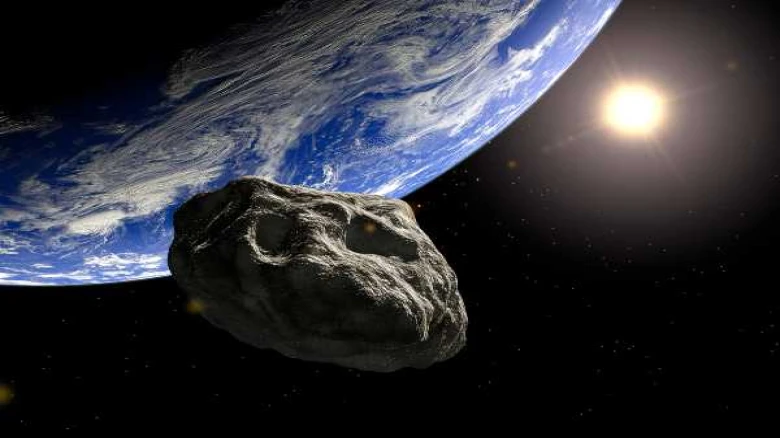Regional

Digital Desk: Consider an asteroid four times the height of
the Empire State Building. Imagine it hurtling through space at a speed of
47,200 mph (76,000 km/h), or 20 times the speed of a bullet. This is how an
asteroid approaches the Earth. On May 27, an asteroid designated 7335 (1989 JA)
is expected to fly by our planet. At 2.5 million miles (4 million kilometres)
from Earth, it is expected to make a near pass. That's ten times the distance
between Earth and the Moon on average.
The asteroid is 1.1 miles (1.8 kilometres) in diameter,
according to NASA's Center for Near-Earth Object Studies (CNEOS). In 2022,
asteroid 7335 (1989 JA) will be the largest asteroid to pass close to Earth.
NASA has classed the asteroid as "possibly
hazardous," according to a report by LiveScience. This means that if the
asteroid ever changes orbit and collides with Earth, it might cause
catastrophic devastation.
Until June 23, 2055, this is the only occasion Asteroid 7335
(1989 JA) will come close to Earth. The space rock will pass within 70 times
the distance between Earth and the Moon in 2055.
NASA now monitors around 29,000 near-Earth objects (NEOs).
This is a collection of astronomical objects that come within 30 million miles
(48 million kilometres) of Earth's orbit. NASA estimates that asteroid 7335
(1989 JA) is larger than 99 percent of NEOs.
This is an asteroid of the Apollo class. This indicates that
it is an asteroid that orbits the Sun like the Earth and occasionally crosses
its orbit. Astronomers have discovered around 15,000 Apollo-class asteroids so
far.
Leave A Comment